'It was a scary time': Cork cancer survivor tells her inspiring story in new documentary
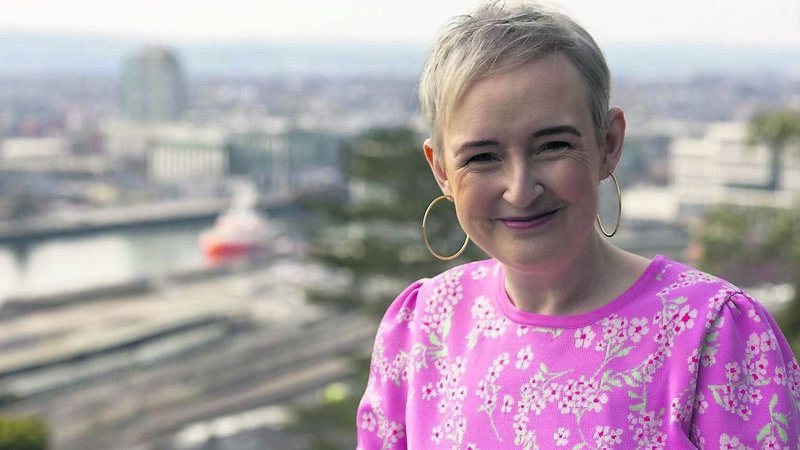
Cancer survivor Ann Marie O’Sullivan, from Cork, tells her story in the documentary ‘Biseach ón Ailse’.
The documentary Biseach ón Ailse tells the stories of two cancer survivors, Ann Marie O’Sullivan, from Cork, and Caitríona Greene, from Donegal. It also features the researchers and advocates who are advancing new approaches to eliminate cancer, backed by the Cork-based medical charity, Breakthrough Cancer Research.
This is a story of hope and perseverance, and a tribute to the remarkable individuals who are working tirelessly to find new, better, kinder, smarter treatments and diagnostics for cancer.
Broadcaster and cancer survivor Evelyn O’Rourke interviews Ann Marie, who lives in the northside of Cork City, along with Orla Dolan, CEO of Breakthrough Cancer Research (BCR), with contributions from researchers Dr Tríona Ní Chonghaile and Maitiú O’Murchú.
Ann Marie was the first person in Munster to receive a new treatment, TCH-P, when she was diagnosed with cancer at the start of the pandemic in 2020. The treatment was successful, and she remembers the hope her medical team gave her.
Ann Marie told The Echo that her cancer was first noticed in May of that year, when a lump appeared in her armpit. The doctor initially told her she shouldn’t be too concerned, but in two weeks it grew from a grape to the size of a plumb. During those weeks, another growth appeared in her breast.
In June 2020, Ann Marie was referred to the care of Cork University Hospital (CUH). “I was 37,” she said.
“All of it didn’t feel like it was lining up to be cancer. First of all, it was in my armpit, and it was sore. Once it sunk in that it was cancer, there was a huge time of anxiety in that they weren’t sure if it was stage-three or stage-four breast cancer.
'SCARY TIME'
“The world was just turned upside down, and it was a scary time. It was a devastating time and a time of huge worry.”
Ann Marie found the chemotherapy incredibly draining. “It felt like I had been emptied out. I found it very challenging. The surgery and radiotherapy were difficult, but not as difficult as the chemotherapy. The chemotherapy took everything.” Ann Marie said she was glad she had spent so much time with her children and family. She entrusted her care to the medical experts, which gave her hope.
“It feels like the train is leaving and you just hop on: You do absolutely everything the doctors tell you,” Ann Marie said.
“I put every bit of faith in their decisions. Despite the pandemic, they moved everything very swiftly. Very fortunately, I live in Cork, where there is a phenomenal medical team in the CUH. They had everything in hand, and they knew best how to treat my particular cancer.”
Ann Marie’s advice to cancer sufferers is to be gentle on yourself.
“Take it slowly. All of this language of ‘fighting’ and ‘battling’: There is space to be kind to yourself and to take things at your own pace.” Taking part in the documentary helped her cope. “
Doing the documentary really made me see what goes behind everything. The level of time and energy and commitment and the years of dedication that these researchers give to this is phenomenal.”
Ann Marie paid tribute to the researchers who “could walk into any other job”, but they spend “years doing this work”. A new drug, called Pertuzumab, which had been trialled, increased the chances of the chemotherapy being a success, while reducing the risk of the cancer returning, but it had never been administered to a patient in stage three.
“I was the first person in Munster to get it, and the first cohort of people with stage three,” said Ann Marie. All the data showed it would be successful, but the funding was lacking.
“The day that I got it, they had gotten the go-ahead that the funding was received, and they could give it to the stage-3 cancer patients,” she said.
Now the lifesaving drug is more widely available, and it was the best treatment. “I just happened to be fortunate enough to be there.”
Ann Marie remembered enough of her school-going Irish to speak as Gaeilge for the documentary. “I was very nervous about my Irish,” she said. “I felt it was a struggle, but I was really glad to have done it. Telling a personal story in a language that I don’t use as much as I’d like to was a challenge, but definitely well worth it.”
Speaking to the Breakthrough Cancer researchers gave her the confidence to go before the cameras.
“I benefitted from the work of Cancer Research, and particularly the people who put themselves for trials. This was a good chance to explain, for anyone who is thinking about signing up for a trial, that it has a real impact. And it gives people hope. It means that the likelihood of surviving is only improved.”
ONE IN TWO
One in two people in Ireland will receive a cancer diagnosis, a stark reality that researchers across are tackling, thanks to the support of leading charities like Breakthrough Cancer Research.
CEO Orla Dolan said their role in the documentary was demonstrating the value of research, hearing stories like Ann Marie’s, and showcasing new advancements and drugs. “From our standpoint, it was helping them identify researchers who are currently on the frontlines,” said Orla. “That’s what we do: We fund the researchers.”
Ireland has 209,000 cancer survivors. “The research we fund tends to be in areas that haven’t seen immense progress,” said Orla.
“Testicular cancer has a 99% survival now. Breast cancer is almost 90%. But pancreatic would still be less than 10.” BCR supports at least 156 researchers across Ireland, from a staff of eight personnel at their base on the Western Road, Cork City. The charity funds research in 13 institutions, including teams in UCC, the CUH, the Mercy Hospital, Bons Secours, and MTU in Cork, but also the Royal College of Surgeons (RCSI), Trinity, and DCU in Dublin.
Cork has a proud pedigree in cancer research. Orla’sfather was Professor Gerald O’Sullivan, a surgeon in the Mercy, who helped pioneer the concept in the 1990s of bringing together researchers and clinicians.
Biseach ón Ailse, supported by BCR and produced by Derek Nagle of Bo Media, will be aired tonight at 8.30pm on TG4. Donations can be made to breakthroughcancerresearch.ie.
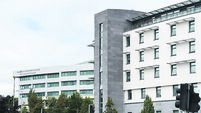
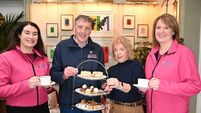
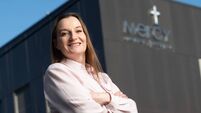
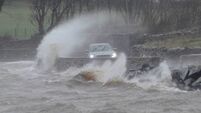
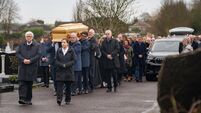
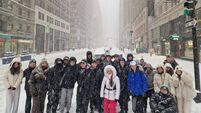




 App?
App?


